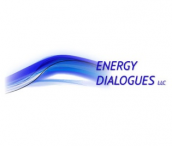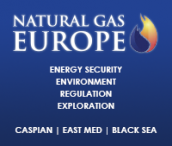

South Stream: The Evolution of a Pipeline
By the year 2030, Europe’s natural gas needs are anticipated to grow by 25%, of which 80% is expected to be imported. Faced with the prospects of diminishing domestic production and uncertainty in respect to the regulatory and environmental aspects of commercial unconventional development, Europe requires security of supply.
Russia, the EU’s largest trade partner for energy goods, has traditionally represented a stable source of gas supply for its numerous European clients. Current projections indicate that the annual supply of Russian gas to Europe will increase from 312 billion cubic metres to 537 billion cubic metres over the next fifteen years.
After successfully completing the Nord Stream pipeline to supply the northern European market, Gazprom has turned its attention to the south and east of the continent.
Involving seven European countries and extending 925 km across the Black Sea through Turkish territorial waters, the South Stream pipeline represents one of the most ambitious infrastructure projects undertaken, with huge engineering and environmental implications.
At a time of austerity in Europe, the economic investment required to develop South Stream offers the prospect of significant benefits to a part of the continent that seeks economic stimulus. However, the building of a pipeline is as much a political challenge as it is an engineering project, requiring the consensus of communities, and agreements at a sovereign and European level.
Questions about how this challenge will be met remain to be answered, and the consequences of how they are will affect the economic shape of Europe's eastern territories. As part of its 'Gas Dialogues' series examining Europe's energy issues opportunities and challenges, Natural Gas Europe is presenting "South Stream: the Evolution of a Pipeline."
“South Stream: the Evolution of a Pipeline” is a series of conferences that will examine the social, environmental and economic impacts of the project. The aim of the gatherings is to promote increased dialogue around South Stream and to highlight the current state of planning and development. The conferences will follow the course of the pipeline, beginning on 25 June 2013 with an event in Sofia and concluding in December with an overview in Brussels.
The conferences will feature the first public research undertaken to understand how various stakeholders, including the public, view the pipeline in each country, together with presentations and discussion panels with senior executives from Gazprom, the South Stream consortium, governmental partners and other senior decision makers.
Natural Gas Europe is an independent media organisation, providing information and analysis of natural gas matters from a wide variety of correspondents, contributors and media partners. Its focus is on the role of natural gas, facilitating dialogue and understanding of related matters, including the environment, regulation and energy security.
For more information contact: rsvp@gasdialogues.com
Press Releases:
- November 18th, 2013: Hungarian Minister of National Development makes case for South Stream’s value and economic benefit for Europe
- October 24th, 2013: Slovenian Minister Commits to Construction of South Stream
- September 27, 2013: EU and Russia will find a Solution for South Stream to the Third Energy Package, says Russian Deputy Minister of Energy
- July 12, 2013: Serbian Prime Minister Ivica Dacic Signals his Support for South Stream Pipeline, Noting its Strategic Importance to Serbia's Standing in the World
- June 26, 2013: Construction of Bulgarian Section of South Stream Ready to Commence in 2013
Articles:
- Brussels, Belgium (December 4th, 2013)
- Hungary, Budapest (November 18th, 2013)
- Ljubljana, Slovenia (October 24th, 2013)
- Milan, Italy (September 27th, 2013)
- Belgrade, Serbia (July 11th, 2013)
- South Stream to Make Serbia Economically Prosperous (Originally published by the Government of the Republic of Serbia)
- Serbian Citizens in Favor of South Stream Construction
- Construction of South Stream in Serbia to Start by End of Year
- Natural Gas - Fuel of the Future
- South Stream Project Gains Two Steps Ahead
- Serbian President Backs South Stream Pipeline
- Sofia, Bulgaria (June 25th, 2013)
Presentations:
South Stream: The Evolution of a Pipeline in Brussels, Belgium (December 4th, 2013)
- European Regulatory Challenges for South Stream: A Way Forward by Katja Yafimava, Senior Research Fellow, The Oxford Institute for Energy Studies
- Public Attitudes in Five Countries to Energy Issues and the South Stream Project Bulgaria | Hungary | Italy | Serbia | Slovenia by Viki Cooke, Director, World Thinks
South Stream: The Evolution of a Pipeline in Budapest, Hungary (November 18th, 2013)
- EU-Russia Gas Relations by Adnan Vatansever, Senior Lecturer, Kings College London
- The Economic Impact of South Stream on Hungarian Energy Consumption by Rimma Subhankulova, Founder, World Energy Expert Group
- South Stream's Role in Hungarian Gas/Energy Policy by András Deák, Director, Hungarian Institute of International Affairs
- Gas storage for supplies from the South Stream by Mr. Balázs Lakatos, Sales, Marketing & General Affairs Manager, Magyar Földgáztároló Zrt.
- The Gas Activity of MVM: The South Stream Project by György Harmati, Strategic Director, MVM Hungarian Electricity Ltd.
- South Stream: Hungary | Research findings from public polling and stakeholder interviews by Ben Shimshon, Director, World Thinks
-
Infrastructure and Market Development by Mr. Pál Kovács, Hungarian Secretary of State for Energy Affairs
South Stream: The Evolution of a Pipeline in Ljubljana, Slovenia (October 24th, 2013)
- South Stream in Slovenia: An Update on Progress by Marjan Eberlinc, General Manager, Plinovodi d.o.o
- Energy in sustainable perspective: descriptive V normative by Professor Leonid Grigoryev, Chair of Global Economy, HSE, Moscow
Chairman of the Board WWF-Russia, Chief Advisor, Analytical Center for the Government of the RF - Natural Gas in the Context of EU – Russia Relations by Danila Bochkarev, Senior Fellow, East West Institute
- Europe: prospects of indigenous natural gas production by Grzegorz ‘Greg’ Pytel, Advisor to European Commission, Sobieski Institute and Partner at Futurisk LLP
- Public and Stakeholder Perceptions of South Stream in Slovenia by Ben Shimshon, Director, World Thinks
South Stream: The Evolution of a Pipeline in Belgrade, Serbia (July 11th, 2013)
- Магистрални гасовод Јужни ток – деоница преко територије Републике Србије by Dušan Bajatović, General Director, Srbijagas; CEO, South Stream doo
- Energy: Broad Picture and Projects in Europe by Professor Leonid Grigoryev, Chair of World Economy, Research University – Higher School of Economics, Moscow; Chief Adviser of the Head of Analytical Center of the Government of the Russian Federation
- Sustainable Energy in the South Eastern Europe by Aleksandar Kovačević, Senior Visiting Research Fellow, Oxford Institute of Energy Studies; Consultant to the World Bank
- ABENGOA: Efficient energy generation in South Stream by Guillermo Bravo, VP BD Strategic Relations, Abengoa Group
- Project Financing of South Stream Serbia Issues & Options by Vadim Dormidontov, Head of Power and Energy, Project Finance Department, Gazprombank
- South Stream: Serbia (Research findings from public polling and stakeholder interviews) by Viki Cooke, Director, World Thinks
South Stream: The Evolution of a Pipeline in Sofia, Bulgaria (June 25th, 2013)
- The Impact of Diversification on Consumer Prices by Greg Pytel, Advisor to European Commission, Sobieski Institute
- South Stream: Bulgaria (Research findings from public polling and stakeholder interviews) World Thinks
- Южен поток: България (Резултати от изследването на общественото мнение и интервюта със заинтересованите страни) World Thinks
- The Impact of South Stream on the Broader Economies of Southern Europe by Antonio Erias, Member of the Energy Committee, Spanish Congress of Deputies
Programme Archives:
- South Stream: The Evolution of a Pipeline in Brussels, Belgium (December 4th, 2013)
- South Stream: The Evolution of a Pipeline in Budapest, Hungary (November 18th, 2013)
- South Stream: The Evolution of a Pipeline in Ljubljana, Slovenia (October 24th, 2013)
- South Stream: The Evolution of a Pipeline in Milan, Italy (September 27, 2013)
- South Stream: The Evolution of a Pipeline in Belgrade, Serbia (July 11th, 2013)
- South Stream: The Evolution of a Pipeline in Sofia, Bulgaria (June 25th, 2013)
Photos:
![]()
South Stream: The Evolution of a Pipeline (Italy) September 27, 2013 Milan, Italy |
South Stream: The Evolution of a Pipeline (Slovenia) October 24, 2013 Ljubljana, Slovenia |
South Stream: The Evolution of a Pipeline (Hungary) November 18, 2013 Budapest, Hungary |
South Stream: The Evolution of a Pipeline (Overview) December 04, 2013 Brussels, Belgium |




































